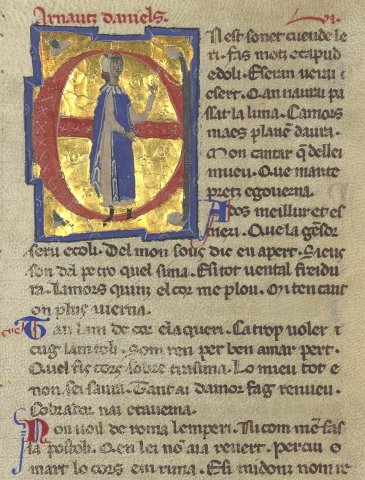
Francesca MANZARI, « De la poésie comme traduction : Pound traducteur d’Arnaut Daniel », E-rea, 22.2, 2025, https://doi.org/10.4000/144r0.
Parmi les motifs récurrents liés à la problématique de la traduction de la poésie demeure celui de son impossibilité. Pourtant, l'histoire de la poésie occidentale est intimement liée à celle de la pratique traduisante au point où il serait aisé de reconnaître à l'activité poétique un penchant intrinsèque au traduire, comme si poésie et traduction allaient de pair, comme si composer un poème était toujours déjà traduire-adapter une forme linguistique et littéraire préalablement existant et appelant à sa transposition et par celle-ci à son renouvellement. La traduction d'un poème est toujours un événement parce que si la traduction de la poésie est considérée comme impossible, elle est toutefois absolument nécessaire. Ici nous étudions ce qui lie la traduction de la poésie à la création littéraire en lisant-écrivant l’une des figures emblématiques de poètes traducteurs : Ezra Pound.
Among the recurrent motifs relating to poetry translation is the question of its impossibility. And yet, the history of Western poetry is closely connected to translation practice, to the extent that it would seem a small step to recognize in poetic activity an intrinsic inclination towards translation work, as if poetry and translation went hand in hand–as if to compose a poem were always already to translate-adapt a previously existing literary and linguistic form, whose vocation was to be transposed and thereby renewed. The translation of a poem is always an event, for while the translation of poetry is considered to be impossible, it is nevertheless absolutely necessary. In this article we study the links between the translation of poetry and literary creation by reading-writing one of the emblematic figures of the poet-translator, Ezra Pound.
